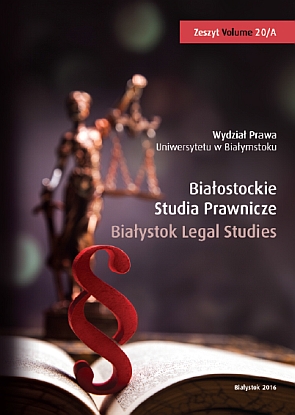Wybory ławników a zasada udziału czynnika społecznego w sprawowaniu wymiaru sprawiedliwości w sprawach karnych
The election of lay judges and the principle of participation by citizenry in the administration of criminal justice
Author(s): Dariusz KużelewskiSubject(s): Law, Constitution, Jurisprudence, Constitutional Law, Criminal Law
Published by: Temida 2
Keywords: lay judge; citizenry; election criminal; proceedings
Summary/Abstract: Participation in the administration of justice not just by professionals but also by representatives of the citizenry, is one of the important manifestations of contemporary modern democratic states. In recent years one can notice not only a reduction in the catalogue of cases involving lay judges, but also a tendency to introduce restrictions on the right to stand as a lay judge (e.g. the requirement of at least secondary education, adequate health, non-exercise of this function by a councillor of a municipality, county or province) as well as to regulate the electoral process more precisely (e.g. explicit exclusion of political parties from proposing candidates for lay judge appointments, raising the amount of citizens filing candidacy from 25 to 50, defining the documents that must be attached to the application for a lay judge post). The current system of selection of lay judges in Poland is a legacy of communism, its principles founded in the 50s and 60s of the twentieth-century. Objections to the current selection system provoke proposals for making amendments. At least four possible ways of selecting lay judges can be proposed: general elections, drawing from among members of the local community, selection by competent courts or the introduction of a lay judge examination. Each of the abovementioned options presents advantages and disadvantages. Perhaps it is worth considering complementing the current electoral process with the ability to nominate candidates as lay judges from among members of the academic community, or possibly other persons enjoying the respect of society by the senates of universities, which should serve to increase the authority and competence of candidates insofar that in essence it constitutes a guarantee of their quality.
Journal: Białostockie Studia Prawnicze
- Issue Year: 20/2016
- Issue No: A
- Page Range: 153-162
- Page Count: 10
- Language: Polish

